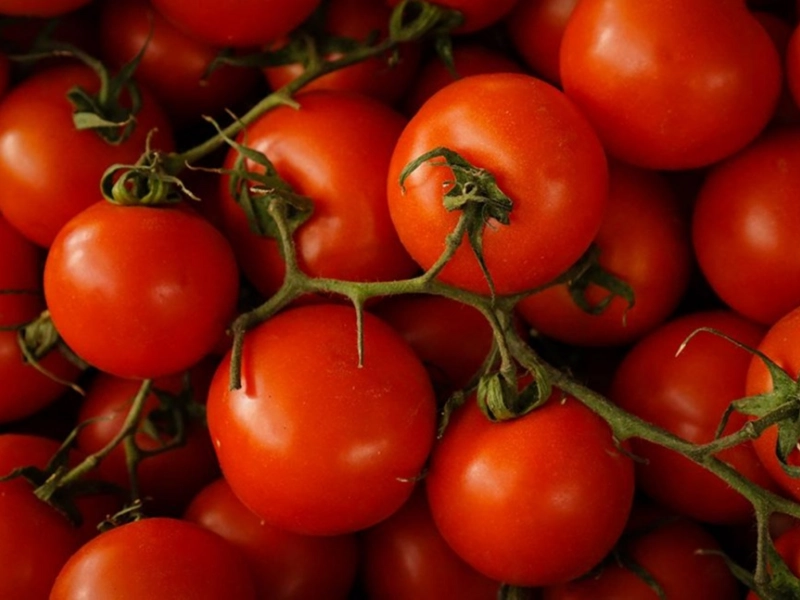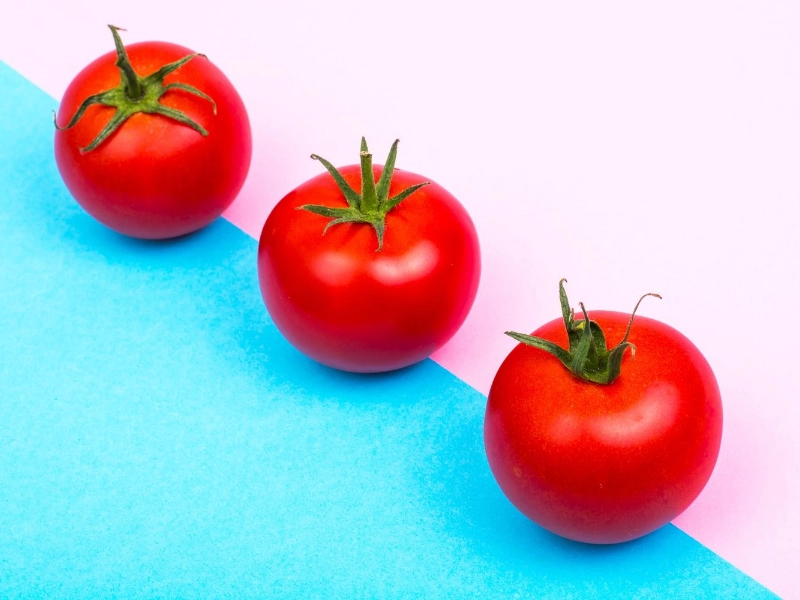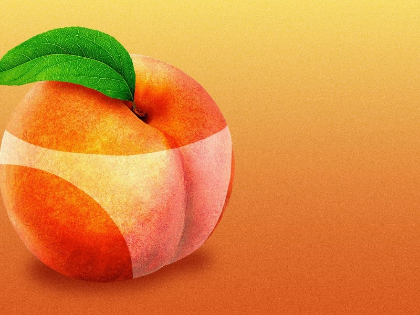Lycopene, an all-star carotenoid that fights free radicals and lessens the effects of oxidative stress, is abundant in tomatoes. Additionally, they have vitamin E and folate, which support the defence of cell membranes.
When choosing tomatoes, go for organic types that were cultivated without the use of pesticides to hasten ripening. These tomatoes will contain higher levels of vital plant nutrients, including kaempferol and other flavonoids.
Lycopene

Advertisement
Many different foods contain lycopene, a naturally occurring red carotenoid pigment. It has been demonstrated to cut LDL cholesterol levels, prevent atherosclerosis, and lower blood pressure. According to recent studies, consuming lycopene may also help older people avoid cognitive loss.
Lycopene-rich foods include watermelon, pink grapefruit, guava, tomatoes (particularly sun-dried kinds), and pink grapefruit. These foods' bioavailability of lycopene is increased by the heat used in cooking them. These foods' fat content aids in improving this nutrient's absorption.
By lowering the levels of the DNA oxidation marker 8-hydroxy-2'-deoxyguanosine (8-OHdG) and by stifling the production of inflammatory cytokines, studies have demonstrated that lycopene may slow the rate of cognitive decline. To ascertain the effects of lycopene on cognitive function, more high-quality studies are required because the outcomes from human trials are inconclusive.
Beta-carotene

In humans, beta-carotene functions as both an antioxidant and a precursor to vitamin A. Dark green leafy vegetables like spinach and kale, carrots, sweet potatoes, melons, winter squash, red and yellow peppers, and herbs like parsley, sage, cilantro, and paprika are among the foods that contain it. Additionally, some animal products, particularly milk, contain it. Because it is a fat-soluble vitamin, dietary lipids help to improve absorption.
Numerous studies have demonstrated that taking antioxidant vitamins on a long-term basis can enhance cognitive performance. These advantages are probably attributable to the nutrients' ability to reduce oxidative stress, which is a risk factor for dementia and other neurological disorders. It's crucial to remember that cognitive improvement only happens with continued supplementation. These antioxidants don't appear to have a meaningful benefit when used briefly.
Antioxidants

One of the best nutritional sources of lycopene, an antioxidant that helps prevent oxidative stress, which can be bad for the brain, is tomatoes. Lycopene, along with other carotenoids and antioxidants, neutralises free radicals, which can harm cells and cause a number of health issues, including emphysema, ischemic heart disease, cancer, respiratory illnesses, and immune system deficiencies.
Antioxidants, which include carotenoids, flavonoids, phenols, and the vitamins C and E, prevent oxidative damage. These can be obtained as supplements as well as in plant-based meals, including berries, tomatoes, and whole grains.
Another crucial mineral found in tomatoes, vitamin C, enhances blood flow to the brain and lowers the risk of cognitive decline and memory loss. Eating a wide variety of fruits and vegetables, such as oranges, cantaloupe, and broccoli, is the best way to increase your intake of vitamin C.
Fatty acids omega-3

Omega-3 fatty acids, which are abundant in tomatoes and support heart and brain function, The ideal approach to increasing your intake of these fatty acids is to eat oily fish twice a week, like salmon, trout, and sardines, as well as take daily Omega-3 supplements (ask your medical team first).
Lutein and zeaxanthin, two phytochemicals found in tomatoes, shield the eyes from the harmful effects of blue light emitted by electronic devices like smartphones and tablets. By defending the air sacs in your lungs, these chemicals may help lower your risk of developing emphysema and asthma.
Whole grains, which are high in B vitamins and complex carbs; dark green vegetables, which are high in antioxidants; and lean red meat, which is high in iron, are additional foods that can help the brain.
Inflammatory-reducing qualities

Lycopene, which is abundant in tomatoes, has many health benefits. About 85% of the lycopene consumed by Westerners comes from tomatoes and tomato-based products. Strong antioxidants like lycopene guard against age-related diseases, including dementia. It lessens harmful cholesterol levels and the inflammatory reaction. Additionally, it guards against age-related macular degeneration and shields the eyes.
Vitamin C, a nutrient that has traditionally been used to cure scurvy, is also present in tomatoes. Additionally, vitamin C enhances wound healing and immunological function. It supports collagen synthesis and keeps the skin healthy.
Attempt to include raw or cooked tomatoes in your diet. Salads can be made with tomato paste, sauce, soup, or juice. Salsa and gazpacho also employ tomato products. adding a small amount of fat, such as olive oil, to your tomato portions














